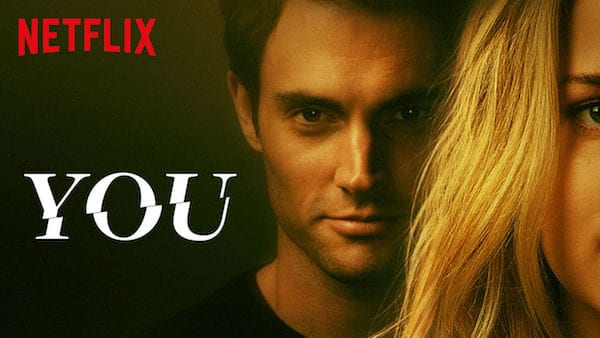‘You’ reveals hidden danger of romantic tropes

Previously aired on Lifetime, “You” has quickly become a certified binge-worthy show by the way it reveals the errors of romantic tropes many people have seen through classic movies like “Say Anything” and “Crazy, Stupid, Love.”
Besides reflecting the errors of this current culture, it has also revealed how this new generation has changed into one which demonizes toxic masculinity while also embracing it.
“You” focuses on Joe, a bookstore owner who lives in New York. He meets a woman named Guinevere Beck or “Beck.” After their first flirtatious meeting, Joe does what many people these days do: he looks her name up on the internet.
At first, the viewer probably understands Joe’s actions because it is something they have likely done. Quickly, he is revealed to have much more sinister motives other than discovering her basic information. His manipulation of the internet and his stalking shows the viewers that Joe is willing to do whatever it takes to find love.
It is also this focus on Joe that limits the series’ viewers negatively. By staying in Joe’s perspective, he gets to build his story and his complex personality while his victims are just another tally on the death count.
Show runner, Sera Gamble, in an interview with Variety Magazine, discusses the inspiration of “You.” “There’s such a huge difference between conducting yourself appropriately in real life, obtaining consent every step of the way and the sweeping love stories we grew up admiring and desiring for ourselves,” she said.
Gamble wanted viewers to discover the logical fallacies of Hollywood love stories, but she missed the mark in the way “You” is focused. If she desired to achieve this while also instilling values of the #MeToo movement, she should have shifted her focus to the victims of these crimes rather than the predator.
However, she did accomplish the task of making an interesting thriller. Joe is not the stereotypical serial killer. He is selflessly kind to Paco, a young boy who lives in his apartment building. This seems to be the one of the only characters Joe really protects and tries to help.
The reason Joe is portrayed as a complex character is because he was created to be this. Gamble said, “One thing we were very, very clear on is that Joe Goldberg is not Dexter. He is the opposite of that cold-blooded, psychopathic killer. He’s a romantic, he’s thoughtful, he’s even a little bit shy and he’s genuinely really sensitive and emotional.” However, he does not deserve this kind of attention or character-building.
“You” is an entertaining series filled with beautiful scenes of New York and the life within, but it has major flaws like romanticizing a killer and not acknowledging his victims. If a viewer desires to fill their down time with a series which keeps them interested, this would be a good pick.
 (4 / 5)
(4 / 5)


